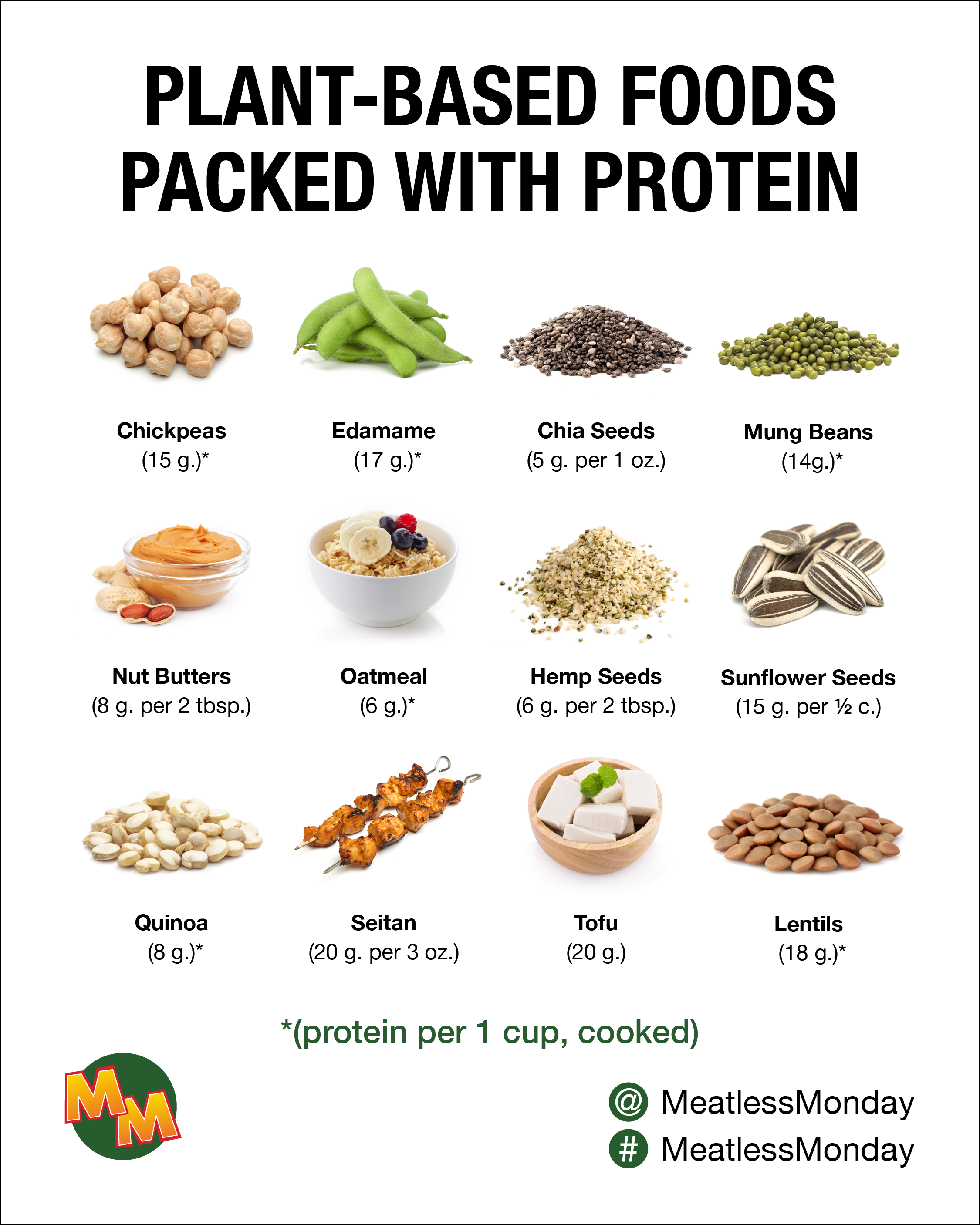All About Healthy Food: Benefits of Embracing Plant Based Alternatives
The conversation bordering plant-based diet regimens has acquired considerable attention recently. Many people are discovering the prospective health and wellness benefits, dietary benefits, and environmental impacts associated with these nutritional options. As individuals end up being more knowledgeable about their food's impact on wellness and sustainability, questions arise concerning the usefulness of embracing such a lifestyle. What details adjustments can one expect, and how might these selections reshape not just individual health yet likewise the planet's future?
Recognizing Plant-Based Diet Plans
Many individuals associate plant-based diet regimens primarily with vegetarianism or veganism, these diet regimens can encompass a vast range of consuming patterns that prioritize entire, minimally processed plant foods. Such diet regimens commonly include fruits, vegetables, entire grains, seeds, legumes, and nuts, while limiting or getting rid of pet items. This versatility permits people to tailor their nutritional selections according to personal choices and dietary needs. Some may take on a primarily plant-based diet plan while still periodically consuming meat or dairy, commonly described as a flexitarian approach. The focus stays on including even more plant foods, which can lead to a diverse variety of flavors and meals. Understanding these different analyses of plant-based consuming is essential for appreciating its availability and allure in modern food society.
Wellness Perks of Plant-Based Foods
The health and wellness benefits of plant-based foods are significant, using a nutrient density advantage that supports total well-being. Research suggests that these foods can enhance heart wellness and play a crucial role in effective weight management. By incorporating much more plant-based options, individuals may enhance their nutritional selections and advertise lasting wellness.
Nutrient Thickness Advantage
Nutrient density plays a vital function in the health benefits of plant-based foods, making them an engaging selection for those looking for a well balanced diet plan. Plant-based foods, such as fruits, vegetables, legumes, nuts, and entire grains, are often abundant in necessary vitamins, minerals, and anti-oxidants while being lower in calories. This high nutrient density permits people to take in fewer calories while still fulfilling their dietary requirements. Additionally, these foods are loaded with nutritional fiber, promoting digestive health and assisting in weight administration. By incorporating nutrient-dense plant-based alternatives, customers can enhance their total wellness, support their body immune systems, and minimize the danger of persistent illness. Ultimately, the nutrient density of plant-based foods highlights their importance in a health-conscious way of living.
Heart Health Improvement

Weight Management Assistance
Along with advertising heart health and wellness, a plant-based diet can substantially assist in weight administration. This dietary technique emphasizes entire foods such as fruits, veggies, legumes, nuts, and entire grains, which are typically reduced in calories and higher in fiber contrasted to animal-based products. The high fiber material assists enhance satiation, decreasing total calorie intake. Plant-based diets are commonly rich in vital nutrients while reduced in unhealthy fats, making it simpler to keep a healthy weight. Research suggests that people that adopt a plant-based way of life often tend to have lower body mass indexes (BMIs) and experience more successful fat burning compared to those who take in meat-heavy diet regimens. Subsequently, embracing plant-based choices is a calculated selection for effective weight management
Nutritional Value of Plant-Based Components
Plant-based components are abundant in necessary nutrients, supplying a varied array of vitamins, minerals, and antioxidants that contribute to overall health. A comparison of protein sources reveals that while animal items are often deemed exceptional, numerous plant-based options offer sufficient protein and other advantageous compounds. Understanding the dietary worth of these active ingredients can assist individuals make informed nutritional selections.
Crucial Nutrients in Plants
Nutrient-rich active ingredients located in plants supply a varied variety of necessary minerals and vitamins that contribute significantly to overall health. These active ingredients are abundant in vitamins A, C, and K, which support immune feature, vision, and blood clot, respectively. On top of that, plants give vital minerals such as calcium, magnesium, and potassium, critical for heart health and wellness, muscle feature, and bone stamina. The presence of fiber in plant-based foods help digestion and advertises a healthy intestine microbiome. Antioxidants, found generously in veggies and fruits, assistance fight oxidative anxiety and decrease inflammation. In addition, lots of plant foods are low in calories yet high in nutrients, making them a superb choice for those looking for to maintain a healthy and balanced weight while guaranteeing excellent nutrient intake.
Contrasting Healthy Protein Resources
Protein Visit Website sources differ substantially in their dietary profiles, with plant-based ingredients offering unique benefits. Unlike pet healthy proteins, which often contain hydrogenated fats and cholesterol, go now plant proteins have a tendency to be lower in these undesirable components. Legumes, nuts, seeds, and entire grains are rich in essential amino acids, fiber, vitamins, and minerals. Lentils give high healthy protein content together with significant iron and folate, while quinoa is a total protein, offering all 9 necessary amino acids. In addition, plant-based healthy proteins are often accompanied by antioxidants and phytochemicals that support total health and wellness. The change to plant-based healthy protein sources not just boosts dietary intake however likewise lines up with sustainable nutritional practices, minimizing environmental effect and promoting long-lasting wellness advantages.
Ecological Effect of Plant-Based Consuming
As recognition of climate change expands, several people are exploring sustainable nutritional options that can greatly reduce their environmental footprint. Plant-based eating has become a significant factor to reducing greenhouse gas discharges, which are mostly related to livestock production. The growing of fruits, beans, grains, and veggies normally requires fewer resources, such as water and land, contrasted to pet farming. Furthermore, plant-based diet regimens can cause decreased logging, as much less land is required for grazing livestock or growing pet feed. By shifting towards plant-based choices, customers can support biodiversity and advertise much healthier communities. Overall, welcoming plant-based consuming not only advantages personal health but additionally represents a crucial action towards ecological sustainability and preservation efforts.
Conquering Common Misconceptions
While lots of individuals recognize the advantages of a plant-based diet plan, several false impressions typically prevent them from completely accepting this way of life. A common belief is that plant-based diets do not have enough protein; however, numerous plant resources, such as beans, nuts, and tofu, supply adequate protein. Furthermore, some assume that this diet is pricey, when actually, staples like beans, rice, and seasonal veggies can be rather budget friendly. An additional false impression is that plant-based consuming is excessively restrictive, whereas it in fact uses a diverse array of foods and flavors. Many stress that a plant-based diet might lead to deficiencies, yet with correct planning, people can obtain all essential nutrients, including minerals and vitamins, while delighting in a vast range of scrumptious meals. Vast Tips for Transitioning to a Plant-Based Way of life
Making the change to a plant-based lifestyle can be an improving experience, though it frequently calls for some guidance to browse the first modifications. Initially, individuals are motivated to begin gradually, integrating even more fruits, veggies, legumes, and entire grains right into their meals while minimizing meat and milk consumption. Dish preparation is vital; preparing a regular food selection can assist alleviate the change and protect against last-minute unhealthy options. Discovering brand-new recipes and cooking approaches can likewise improve the experience and keep exhilaration about plant-based eating. Additionally, joining support system or communities can supply motivation and share important pointers. Staying educated regarding nutrition guarantees balanced dishes, stopping shortages while promoting a healthy, rewarding plant-based lifestyle.

Delicious Plant-Based Dish Ideas
Exploring scrumptious plant-based meal concepts can motivate individuals to embrace an extra nourishing diet regimen. One popular alternative is a passionate quinoa salad, including cherry tomatoes, cucumber, and a zesty lemon-tahini clothing. One more favorite is a full-flavored lentil stew, loaded with carrots, celery, and fragrant natural herbs, perfect for a comforting supper. For morning meal, over night oats made with almond milk, chia seeds, and covered with fresh berries provide a nutritious start to the day. Additionally, a lively veggie stir-fry with tofu and a selection of vivid veggies can be a fast yet pleasing dish. Finally, creamy avocado toast on whole-grain bread, sprayed with seeds and seasonings, supplies an easy yet tasty treat. These dishes showcase the variety and richness of plant-based consuming.

Often Asked Concerns
Can a Plant-Based Diet Plan Give Enough Protein?
The concern of whether a plant-based diet can give enough protein prevails. Numerous sources, consisting of legumes, nuts, seeds, and entire grains, can satisfy protein needs efficiently, supporting a balanced and nourishing diet for people.
Are Plant-Based Diets Ideal for Children?
The viability of plant-based diets for children depends upon mindful planning. Adequate nutrients have to be ensured, including minerals, healthy proteins, and vitamins. With appropriate assistance, such diet plans can sustain healthy and balanced growth and development in youngsters.
Exactly how Do I Eat in restaurants on a Plant-Based Diet plan?
Eating out on a plant-based diet entails seeking restaurants with varied food selections, requesting for modifications, and checking out vegan-friendly alternatives. Planning ahead and interacting dietary preferences can improve the eating experience while keeping dietary selections.
What Are Common Allergens in Plant-Based Foods?
Typical allergens in plant-based foods consist of soy, gluten, nuts, and seeds - Plant Based Beef. People following a plant-based diet plan needs to know these allergens and check out labels meticulously to avoid unfavorable reactions and assure secure usage
Can Plant-Based Diets Assist With Fat Burning?
Research shows that taking on a plant-based diet regimen may promote fat burning due to its generally lower calorie density and greater fiber web content. This combination can enhance satiety, aiding individuals handle their caloric consumption efficiently. Numerous individuals connect plant-based diet regimens mostly with vegetarianism or veganism, these diets can include a wide range of consuming patterns that focus on whole, minimally processed plant foods. Nutrient thickness plays a vital duty in the health benefits of plant-based foods, making them an engaging option for those seeking a balanced diet plan. Plant-based diet regimens have been shown to considerably boost heart health, as they often consist of components that support cardiovascular feature. In enhancement to promoting heart health and wellness, a plant-based diet can significantly help in weight administration. An visit here usual belief is that plant-based diet regimens do not have adequate healthy protein; however, numerous plant resources, such as vegetables, nuts, and tofu, give enough healthy protein.